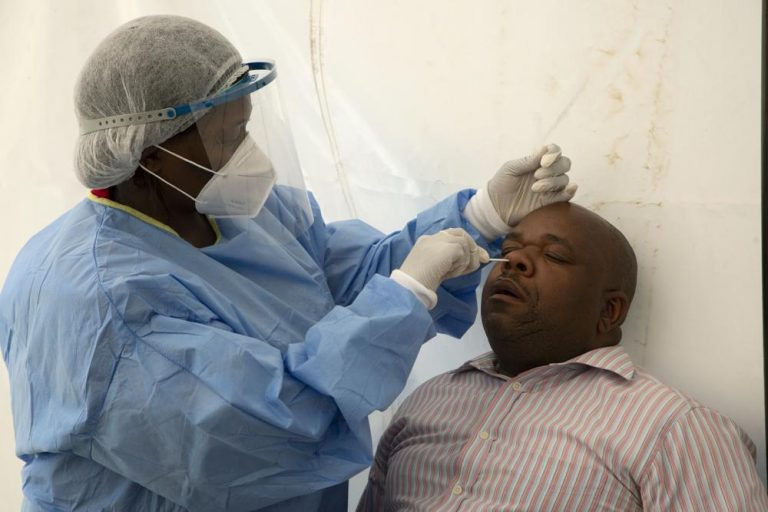Health experts in South Africa say that the nation is seeing a surge in covid cases driven by two omicron variants.
For the last three weeks, the country is seeing high rate in covid cases as well as somewhat high rate of hospitalisation, Professor Marta Nunes, a researcher at ‘Vaccine and Infectious Diseases Analytics’ at Chris Hani Baragwanath Hospital in Soweto.
South Africa’s cases went from an average of 300 cases a day in early april to 8,000 cases per day this week.According to Professor Nunes, the true number of new cases is likely to be higher because the symptoms are mild and many people who become ill do not get tested.
This new rise in cases is mainly because of two variations of omicron- BA.4 and BA.5, which appear to be similar to the original omicron strain, which was first identified in South Africa and Botswana in November of last year.
“The majority of new cases are from these two strains. They are still omicron … but just genomically somewhat different,” adds Nunes.
According to her, the new variations can infect people who have had past COVID infections or have got the vaccine, however they only cause minimal sickness.
In South Africa, 45 percent of individuals are fully vaccinated, however an estimated 85 percent of the population has some immunity due to previous exposure to covid.
According to Nunes, the BA.4 and BA.5 omicron strains have expanded to other nations in southern Africa and a few European countries, but it is too early to say whether they will spread over the rest of the world like their original strain.
This sudden surge in covid cases is being seen at the time when the nation is entering the Southern Hemisphere’s colder winter months and the country is seeing a rise in cases of flu.
“Now that we’re in flu season,” Magdeline Matsoso, site manager at the Chiawelo immunisation centre, explained, “it’s flu versus COVID-19.” People come for testing because they have COVID symptoms, according to her.
Matoso further added, “When we do the tests, you find that the majority of them are negative when it comes to COVID, but they do have flu symptoms, so they get flu treatment and then they go home because the majority is related to flu and not COVID.”
One person named Vuyo Lumkwani came for testing. She said “I wasn’t feeling well when I woke up this morning. I woke up with body pains, a headache, blocked (nose), and feeling dizzy, so I decided to come here. I was terrified about my symptoms because I thought it might be COVID-19, but I told myself that I’d be OK because I have been vaccinated.”
She expressed relief at being diagnosed with the flu and told to go home with some medicines and rest.












